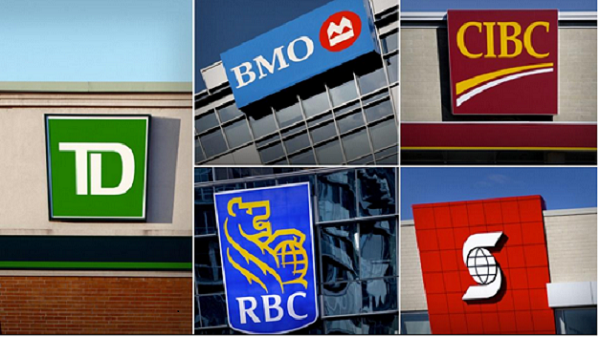Rising geopolitical tensions could offset some of the benefits for banks in 2025, experts warn
U.S. president-elect Donald Trump could ease the regulatory burden for the banking sector’s largest lenders, but experts warn that rising geopolitical tensions could offset some of the benefits for Canadian and U.S. banks in 2025.
Mr. Trump is expected to lower regulatory requirements in the financial sector, in particular those on capital levels and takeover scrutiny on banking deals that were implemented under President Joe Biden. But rising protectionism and a weaker Canadian economy could inhibit a potential turnaround for the banking sector, which has faced climbing provisions for sour loans and tepid loan demand.
Under Mr. Biden, banking regulators proposed hiking capital levels that would require lenders to build piles of excess cash as a cushion against souring loans. U.S. banks launched a major opposition campaign, saying the change would harm the economy and make the country’s banking sector less competitive compared with global peers.
The proposal stems from mandates from Basel III, an international accord struck after the 2008 financial crisis to help prevent bank failures.
“Changes to bank regulation, including a further tailoring or redo of the still pending Basel III Endgame rules may reduce or further delay final capital requirements for U.S. banks,” John Mackerey, Morningstar DBRS senior vice-president and sector lead of North American financial institution ratings, said in a note. “The mergers and acquisitions (M&A) landscape for banks may also benefit with shorter approval time frames, which may accelerate consolidation.”
U.S. regulators have already pulled back on proposed capital hikes, cutting the increase to 9 per cent from 19 per cent in September.
A further reduction or delay in the U.S. could prompt other countries to pull back on their own rollouts of the Basel III mandates. While Canada’s banking watchdog has endorsed the regulatory changes, in July the Office of the Superintendent of Financial Institutions delayed the implementation of higher capital requirements by one year.
Canadian Imperial Bank of Commerce chief executive officer Victor Dodig said during a conference call in early December that banking regulation in the U.S. will likely loosen, and that Canadian regulators would want to create a “level playing field.”
“You can read the tea leaves in the United States in terms of where things are likely to go,” Mr. Dodig said in response to an analyst question while discussing fourth-quarter earnings results. “And I’d like to think that we’ll be given the opportunity to continue to compete for business in our own economy, as well as in the U.S. economy.”
OSFI head Peter Routledge said that the regulator is monitoring the policy environment in the U.S. as Mr. Trump prepares to take office in January, and could provide an updated assessment in its quarterly update in either February or May.
“With respect to what’s happening in the United States with the change to a new administration, we’ll let that play out,” Mr. Routledge said during a conference call in mid-December discussing capital requirements for the banks. “We’re ready to adapt in a way that is constructive and healthy for the Canadian financial system.”
But looming tariffs threaten to offset a more lenient regulatory environment. Fitch Ratings expects bank profits to remain flat in 2025 amid weak loan demand and tumultuous corporate and investment banking activity because of potential trade disputes.
“The incoming U.S. administration’s protectionist stance will create some instability in U.S. and Canada relations,” Fitch Ratings senior director Maria-Gabriella Khoury said in a note. “An increase in U.S. protectionism will have an impact on corporate lending.”
While Canadian banks would not be directly exposed to the fallout of U.S. tariffs, they would face challenges through key sectors where lenders have direct credit exposure, including manufacturing, transportation and natural resources, according to Bank of Nova Scotia analyst Meny Grauman.
“All the banks would be heavily exposed to the economic fallout from a Canada-U.S. trade war, although banks with a higher share of earnings coming (from) the United States, such as [Bank of Montreal] and [Toronto-Dominion Bank], would be relatively more insulated,” Mr. Grauman said in a note.
Bank CEOs largely say that, while the threat of tariffs and mounting global discord pose risks to the sector, easing inflation and borrowing costs will help bolster economic activity and spur demand from customers.
“Although risks remain from still restrictive interest rates, ongoing geopolitical tensions and potential trade protectionist measures, we’re optimistic that central-bank easing and expansionary fiscal policies will begin to set the stage for relief for Canadian and U.S. clients and support a moderate pickup in growth in both countries,” BMO CEO Darryl White said during a conference call in early December. “This optimism is reflected in my recent conversations with clients.”
This article was first reported by The Globe and Mail













